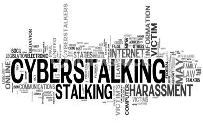 There is an interesting case in the news these days about a German athlete (and police officer) who received an email from a fan that included a sexual explicit photo. The reason it is in the news is that the athlete then posted the name and photo to her Facebook page effectively outing the stalker from the anonymity of the internet.
There is an interesting case in the news these days about a German athlete (and police officer) who received an email from a fan that included a sexual explicit photo. The reason it is in the news is that the athlete then posted the name and photo to her Facebook page effectively outing the stalker from the anonymity of the internet.
I think it’s a pretty normal first reaction to say, “Good for her”. The vicious anonymity of internet posters and their ability to cyber bully is a well-known phenomenon by now and has resulted in more than one tragic incident. The fact that someone was sending these things to a relatively public figure is a violation of her personal life. I see this sort of behavior in minutia every time I read the comment section of a news article. The anonymity of the internet gives way to a crowd mentality wherein otherwise law-abiding, peaceful people behave in ways they never otherwise would.
However, in this case there are some considerations of privacy for the person outed to be thought about.
The first thing that comes to mind is if the stalker used someone elses identity when they emailed and sent the photo. This is not as far-fetched as some might imagine. It’s quite easy to impersonate someone with an email. All you need is a photo and a fake email account with that person’s name on it. A supposed stalker could really be someone with a grudge against a third-party. They would then frame this person by sending incriminating emails. When I was in college a few friends of mine thought it would be funny to give gay men they met at clubs my phone number and name as their own. It was relatively harmless as I simply informed the eager caller that it was my friends being stupid. In this situation the person so outed might have a significantly more difficult time proving their innocence and would certainly have their reputation tarnished.
Another possibility is that the supposed victim of the crime might actually be the perpetrator. Perhaps they have a grudge against the other person and have a partner send phony emails and images. Again, it’s not hard to obtain pictures of a person as almost everyone has posted images of themselves to some form of social media or another.
There is talk in Germany, where online privacy laws are more stringent than the United States, of charging the athlete with a crime.
It’s an interesting case and I’m not sure there are easy solutions. Cyber bullying and cyber stalking is a huge problem but the potential for the wrong person to be unintentionally outed our even framed certainly exists. Once erroneously outed that person’s reputation and life might well be forever ruined.
What do you think?
[polldaddy poll=6166935]
Tom Liberman
Sword and Sorcery fantasy with a Libertarian Twist
I have been the victim of a e-mail impersonation – it was pre-Facebook so I didn’t have the option to out the person however I can attest to the harmful consequent. As a result of the impersonator sending an abusive e-mail to my entire contact list I lost several friends who were in other states and countries because they blocked me and i have never been able to re-connect with them and explain the situation. Luckily my boss (who also received the e-mail) did not believe it had come from me and made contact with me as soon as they became aware of the situation to check I was okay.
I am not sure if – had this happened to day – I would have outed the person on Facebook though. They were reported to the police and perhaps that is the answer. If the other person has committed a cyber crime then take the issue up with the police rather than take justice into your own hands.
An excellent example of how easy it is to impersonate someone on the internet. It’s a tricky situation as I do think people who engage in stalking of this nature deserve to be outed but I’m wary of the potential for innocent people to be “outed” publicly.
Thank you for the post!
Tom